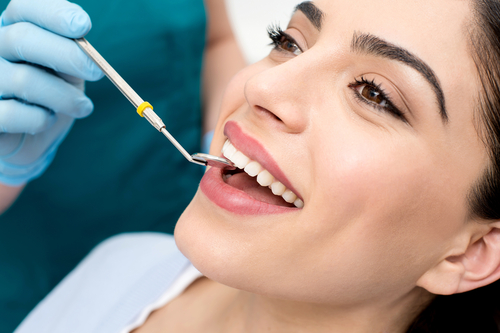Oral Health during Pregnancy

Baby is on the way and there’s so much to do, organize and plan. But don’t forget to include oral health right near the top of your priorities. It is one of the most important things you can do for you and your baby.
Oral health problems can affect anyone’s general health as the mouth is the gateway to the body and first line of defence when it comes to disease. When you’re pregnant, hormone activity makes you and your baby even more vulnerable. Indications are that gum disease can cause your baby to be born underweight and too early.
Pregnancy gingivitis
The most common gum problem women experience at some stage in pregnancy, gingivitis causes the gums to become red, swollen and inflamed. They might even bleed when you brush. Most of the time, it disappears with treatment before the birth, or within a few months afterwards.
However, it can have dire consequences if ignored and allowed to become periodontal disease. This can damage the bones and fibres supporting your teeth permanently, resulting in tooth loosening or loss, changes in your bite, how you eat, and even in your speech.
Pregnancy tumours
Usually painless and benign, these red or purple growths affect about 10 percent of pregnant women, and disappear after the birth. However, if they start causing pain or bleeding, they might have to be surgically removed.
Gingival enlargement
The least common problem attributed to pregnancy hormones, this involves gum enlargement to a point that the gums overlap the teeth, and sometimes cover them completely.

- The best way to prevent oral health issues is to ensure you continue regular check-ups with your experienced Richmond dentist, who will be able to detect the onset of problems and treat them immediately. Tell your dentist you are pregnant and at what stage you are. Back this up with being alert to any changes in your mouth. See your dentist if you’re at all concerned about changes you find.
- Ensure you follow a good oral hygiene regimen. Brush twice a day for two minutes at a time and use floss every day. If necessary, change your toothpaste to one with a blander taste if morning sickness makes stronger flavours hard to take. Also remember to rinse your mouth well after bouts of morning sickness.
- While pregnant, avoid sugary and acidic foods, regardless of cravings. If you do eat them, rinse or brush your teeth shortly afterwards. Try to follow a balanced diet which will both keep you healthy and help your baby’s gum, tooth and bone development.
Dental treatment during pregnancy
There was a time when the common belief was that dental care can’t be done while you’re pregnant. These days it’s far from that – routine treatments are safe, X-Rays are possible and even emergency treatments can be performed. Your dentist will ensure that no harm comes to you or your baby.
However, it’s better to put off any elective treatments such as cosmetic work till after baby is born. When it comes to other dental work, defer it if possible, but follow the advice of your dentist. If X-Rays are unavoidable, they should be conducted with suitable shielding of the thyroid and abdominal area.
The first trimester and last six weeks are very important in your baby’s development and growth, so don’t take chances unless you have to.